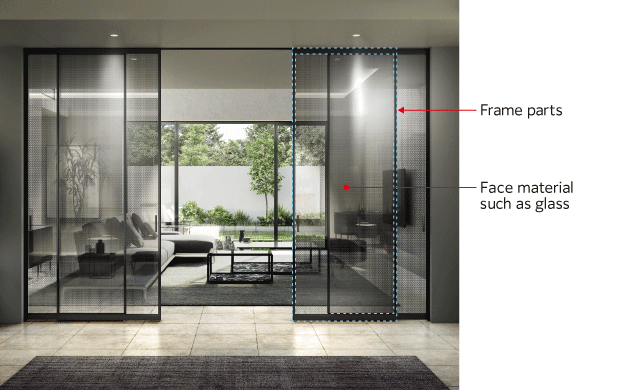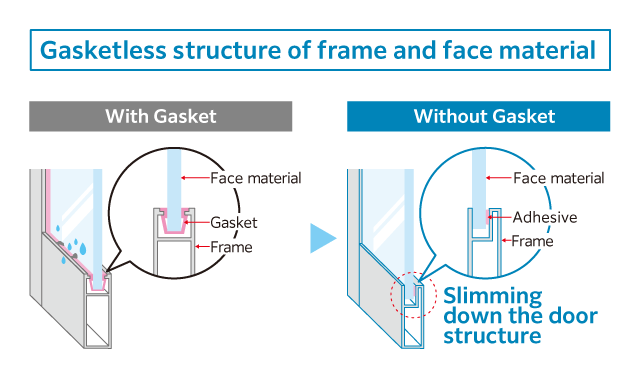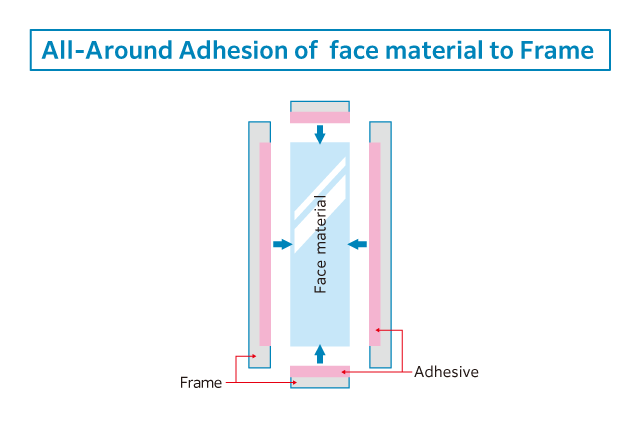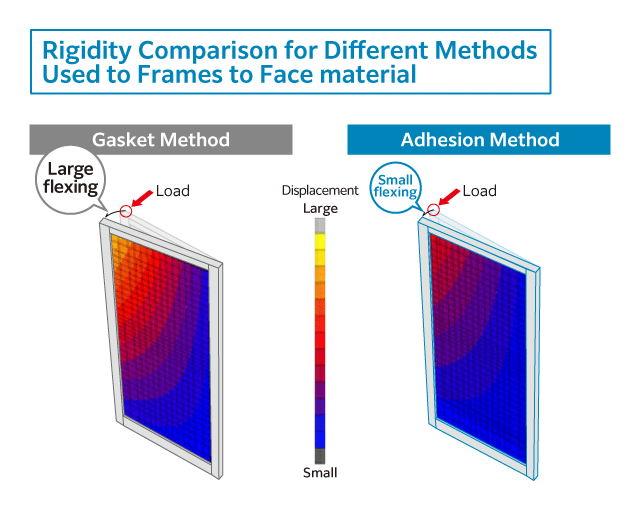- HOME
- Technologies
- Highlighted Technologies
- "Window and Door Joining Technology"Adhesion Technology for Slim, Easy-to-Clean Frame
"Window and Door Joining Technology"
Adhesion Technology for Slim,
Easy-to-Clean Frame
Technologies
In a conventional system, a rubber tight material serving as a gasket is needed to integrate and and fix window frames with glass and other face materials. But there are problems with this material, especially the fact that it attracts mold and grime, and the rubber itself degrades with time. YKK AP started researching and developing adhesives specifically for windows beginning in the 2000s, and succeeded in creating a “face material adhesion technology” that doesn’t use a tight material. We pioneered the use of gasket-less adhesives for bathroom doors in 2005 and for windows and interiors in 2009,and have since developed a wide range of such products.
Integrating the frame and the face material using all-around adhesion improves the rigidity of windows and doors themselves. The space previously required inside the frame for gasket insertion, and to ensure rigidity, is no longer necessary. This facilitates an unprecedented slim design, with a frame width of only 10mm. The shift in alignment where the face material meets the frame is reduced to approximately 1mm, making it difficult for grime to accumulate, so cleaning is much easier. This also greatly improves mold prevention for bath room doors.
Our development of this face material adhesion technology began with bath room doors. Our requirements when selecting an adhesive were; (i) no becoming fragile to the adhesive itself through usage over time; and (ii) easy to handle after adhesion is achieved during manufacturing. We conducted studies into adhesive composition and reaction mechanisms, to develop our own adhesive. We devised a production method for applying optimum amounts of adhesive into frames from optimum angles, and established a manufacturing process that applys the adhesive consistently using advanced machine tool technology.
Of particular note: Compared to glass, face material of synthetic resin for bath room doors has a higher thermal expansion coefficient (the extent to which the shape changes due to temperature fluctuations). In addition, the challenge was to conform the expansion and contraction of the face material to the frame. But overcoming this challenge allowed us to develop high-quality face material adhesion technology at an early stage.
As our development shifted toward commercialization, we conducted numerous durability tests for anticipated “actual use” scenarios, in addition to basic adhesion performance tests. We have verified performance assessments and confirmed that adhesive strength can last even years beyond the warranty period. The assessments included chemical resistance testing for anticipated use of cleaning products, creep testing to ensure the product can withstand its own weight over a long period of time, cyclic fatigue testing to account for thermal expansion and contraction under repetitive temperature changes, and hot/cold cycle testing.
Manufacturing, sales, technology, machinery and engineering… This face material adhesion technology was developed through collaboration across company divisions. We have applied it for face material of glass, and used it for a wide range of products, especially windows and interior doors, and for exterior structures as well.









